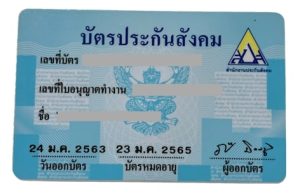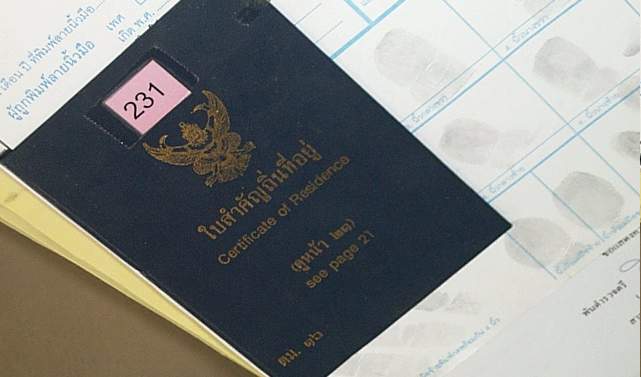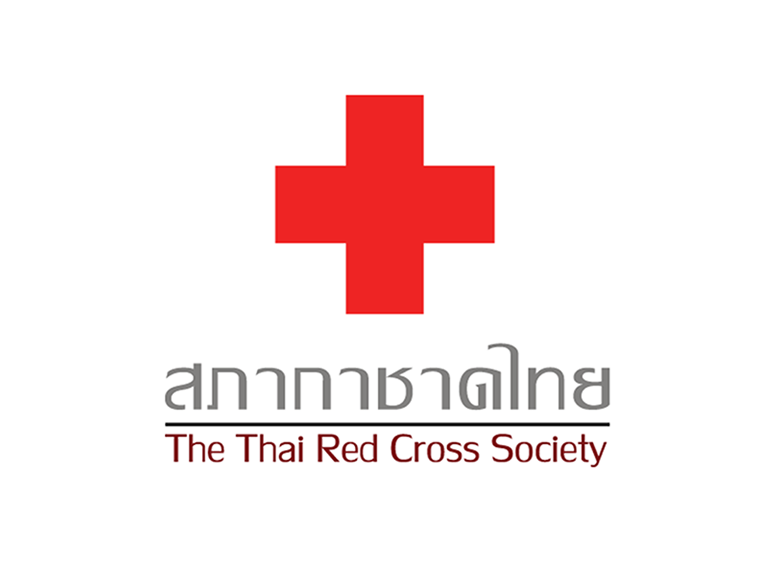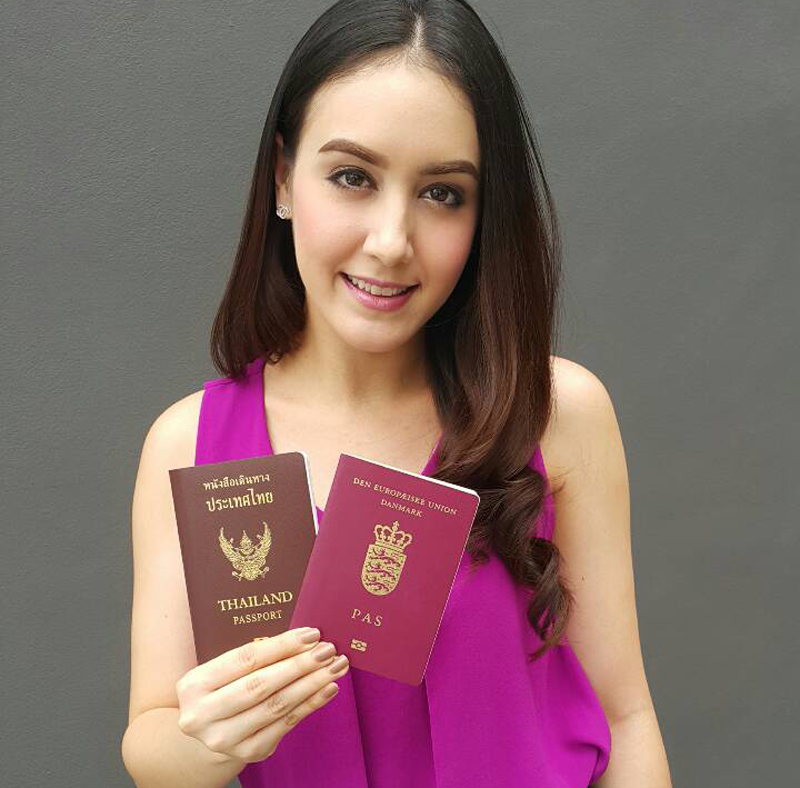The $15 per month comprehensive health insurance coverage for living in Thailand.
One of the key aspects of laying the groundwork for living in Thailand is to make sure you’ve got sufficient health coverage. Horror stories of expats of being caught without health insurance abound, and for many, it means giving up on their dreams of living in Thailand on a permanent basis.
While there are some very decent private health insurance plans available for people moving to Thailand, it’s no secret that as you age, private health insurance options get more expensive, and the coverage becomes less generous as pre-existing conditions get excluded.
Then you as you hit 60 or 65 years of age, and your existing health provider might even decide to not renew your plan. For those providers that do, the coverage is limited and can be expensive. A 33 million (US$1 million) baht level of annual inpatient coverage (pre-existing conditions excluded) might run to 130,000 baht ($4000) per year for an otherwise healthy 65-year old (that’s if they are happy to insure you!).
But what if there was a cheap health insurance option to ensure that you had lifelong comprehensive coverage while you stayed in Thailand and would only set you back around US$15 per month?
Not working in Thailand? Stop reading here…(sorry!)
Now before reading on, if you haven’t worked in Thailand, or have no intention of working in Thailand, this article isn’t for you.
But if you are working in Thailand, even for as little as a year and have plans at some point in future to stay in Thailand longer term, then there will be plenty if critical info in this article for you.
Thai Social Security – the government insurance scheme (which you can keep for life)
When you work for a Thai company, in most instances (with a few exclusions for teachers, civil servants, university employees and company directors), your HR will be legally required under section 33 of the Social Security Act, to enroll you into Thai social security system.
In addition to 750 baht the employer pays, a small portion of your salary (max 750 baht per month) will be deducted to pay for contributions to a fairly wide-ranging social safety net including health care, maternity, pension and unemployment insurance.

In many cases, you probably don’t even know you had these entitlements.
More likely than not, your employer will also have enrolled you into a private health insurance program as well – in addition to your social security coverage. This is purely optional for employers, but it is standard that employers provide private health insurance as part of the overall employee employment package.
Thai Social Security Coverage
The system as a whole is administered by the Thai Social Security Office, commonly known as the ‘SSO’.
There are a range of things that are (and aren’t covered) when employed and covered under Thai Social Security, which is separate to other benefits your employer may also provide. We’ve put together a table of most of the things covered by the SSO while you are employed.
| Item | Covered? | Restrictions |
| In patient care | Yes |
|
| Treatments | All treatments except those outlined on the SSO’s main list: | Excluded treatments include:
|
| Organ Transplants | Highly restricted |
|
| Medications | Yes | Medications on the main national list of approved medicines. |
| Dental | Limited |
|
| Optical | Not covered, with some small exceptions |
|
| Maternity | Yes | Pre-natal and post-natal checks subject to caps (max 1,500 baht)
Fees for delivery capped at 15,000 baht per child (no limits on number of children) |
| Child allowance | Yes | Monthly allowance of 800 baht per child (max 3 children) until 6 years of age |
| Annual check up | Yes | Annual health checks – limits and tests determined by your age and sex, but progressively increase over time. This includes:
|
| Unemployment | Yes |
*Calculated from a standard base salary currently set to 15,000 baht/month |
| Invalidity | Yes | Includes:
|
| Death | Yes | Funeral grant of 50,000 paid to funeral director |
Source: CLC Asia research
There is an extensive network of mainly public (but some private) hospitals registered with the Thai social security system. The list (Thai only sorry) of hospitals in the Thai Social Security network can be found here.
You’ll have the option of choosing the main hospital in your area to be the site of your primary care and you have the option of updating your preferences annually at the start of each year.
It is important to remember too that you’ll need to seek primary care through your main registered hospital if you don’t wish to pay out of pocket expenses. If in an emergency, you need to go to another SSO registered hospital, you can, but you’ll need to pay up front first and then get reimbursed later.
Life-long health insurance coverage?
Yes – if you set in place a few things.
But first, the important, but boring stuff. The Thai Social Security Act says:
Section 39 “Any person who is an insured person under section 33, has paid contribution for a period of not less than twelve months and, subsequently ceases to be insured person in pursuance of section 38(2), if such person wishes to continually be insured person, he or she shall, within six months from the date of his or her termination to be insured person, notify his or her statement to the Office according to the regulations prescribed by the Secretary– General”
So why is Section 39 important?
In plain English, when you leave your job – and this can be at any age and on any visa status – you can walk into any Social Security office and elect to continue the health insurance coverage provided under the scheme.
You’ll nominate a Thai bank account from which the SSO insurance premium can be taken from, after which 432 baht per month will be deducted automatically and your SSO insurance coverage will continue.
Basically, under Social Security legislation, once you have contributed 12 months of social security payments, you are entitled to Social Security provided health insurance – FOR LIFE, subject to three VERY important caveats which I outline below.
1) Enroll within 6 months of finishing work
Assuming you never go back to work again for a Thai company, you have one chance to keep your Social Security health coverage and you MUST enroll to maintain your health insurance within six months of leaving work. At 6 months and one day, you lose that right forever.
2) Be registered on a yellow Tabien Baan and have a Pink Thai ID
We’ve received multiple reports from foreigners attempting to claim their insurance under Section 39 that the Social Security Office now requires foreign applicants to be registered on a House Registration, or Tabien Baan. For all foreign citizens who aren’t already Thai Permanant Residents, this means you’ll need to get your name registered on one before you can apply for the insurance. Fortunately, we’ve already got an article here on how to register yourself on the Yellow Tabien Baan.
3) You need to maintain payments
Once you are signed up, you’ll need to pay the 432 baht per month ‘premium’ to continue the health coverage. If these payments lapse for more than a few months, you will lose coverage and you won’t be eligible to re-instate it unless you return to work for a Thai company.
So is Thai Social Security insurance worth it?
Everyone will have different opinions on this, but to my mind it is.
It will be different for everyone, but if your employer is also providing you with private health insurance then most people are going to take advantage of it, particularly if you get access at the big private hospitals.
But what happens after you stop working and don’t have access (or can’t afford) private health insurance? At that point, the value of having Social Security insurance really comes to the fore.

Thailand has an excellent public health system. While they aren’t the flashy luxury private hospitals, many of the doctors who work at the big private hospitals often split their time working in the public system.
Some hospitals are better than others, lesser equipped hospitals will usually refer patients to larger hospitals where they’ll a good standard of treatment. Like most public health systems, getting ‘into’ the system usually is the most bureaucratic part of the process, often with waits for certain non-life threatening procedures. But once ‘in’, things tend to run a lot more predictably and smoothly.
For the 432 baht a month you are paying, you are essentially getting as close as a comprehensive and universal form of health care that many other countries provide, but without the need to be a Thai citizen or Permanent Resident. Indeed, you can be in Thailand on a tourist visa and still receive treatment if you are insured.
One area where it may affect however, is your Thai State Pension. While you are working, part of your SSO contribution goes towards the equivalent of a Thai State Pension which is available to all members of the SSO, Thai or foreign. When finishing work you’ll have the option of either taking a lump sum amount or – if you’ve made 180 months’ of contributions – getting a modest monthly pension of around five thousand baht from age 55 onwards for the rest of your life.
If you do decide to take the medical insurance, the SSO will use a different income base to calculate your pension payment, effectively lowering it by a few hundred baht per month, assuming you’ve made 180 months’ worth of contributions. While it’s not much in the scheme of things, it is worth knowing.
Using Social Security as part of a long-term Thai residency strategy
For those being a little bit strategic about their plans for Thailand, having the Thai social security insurance as an option is really a clever and indispensable part of setting yourself up for stress free extended stay. There are a number of ways to lay out this strategy, so that when you need it, you have it.
a) Setting up SSO coverage, even if you don’t need it (yet)
For those who aren’t near retirement yet, but who but may be working in Thailand and then planning come back at some point in the future to retire, keeping your SSO insurance ‘active’ could also be a wise strategy.
Given that the Social Security premiums can be set up to be automatically deducted from any Thai bank account, loading up a bank account with many years of premium payments on a ‘set and forget’ basis so you can spend your time not having to worry about what happens if you get sick or injured in Thailand.
This would allow you, for instance, to work in Thailand for a few years, go elsewhere while maintaining your access to this insurance for when you decide to return to Thailand to retire. Paying what essentially amounts to $15 per month (or $180 per year) for the option of ensuring you have cheap comprehensive health insurance coverage in Thailand is really an excellent deal.
b) Private health insurance + SSO coverage in your back pocket
Those who are comfortably well-off may opt to pay for private insurance premiums. However, as discussed earlier, these premiums will increase substantially as you age and, in many cases, the insurance company may reduce, or totally kick you off, their coverage, particularly as you approach the age of 65 or 70.
Knowing you have the safety net of Thai Social Security health insurance means you aren’t left high and dry coverage wise in your older age if your insurance provider refuses to renew their coverage.
c) Self-insurance + SSO Coverage
Many people choose to ‘self-insure’ for health care expenses, either out of necessity (i.e. can’t get or afford private insurance) or by deliberate choice.
Putting aside what you would otherwise pay in health insurance premiums into a special kitty and building up your own health fund buffer – or just putting a lump sum aside for health care expenses – is known as ‘self-insurance’.
There are a number of approaches to using these ‘self-insurance’ funds, but the most common involves relying on Social Security major events such as major surgeries in public hospitals, or for long-term therapies such as cancer treatments.
Alongside this, you may use your own private monies to pay for ‘out of pocket’ expenses associated with those procedures (i.e. private rooms, better food and non-covered SS drugs and medicines). Those private monies might also be used for routine outpatient treatments hospitals or specialists for more mundane and predicable medical care needs for which there might be a wait under the public system.
For those who want to be treated in private hospitals for more serious procedures, institutions like Bangkok Hospital, publish extensive price lists for major procedures and can be used as a good comparison tool of how much in private savings you might want to keep aside should you want to be treated as a private patient for ‘big ticket’ procedures. (It should be noted too that public hospitals often do perform many procedures for people who want to pay privately too, often at a fraction of what bigger private hospitals charge, so it is worth asking).
Whatever the case, the Thai social security insurance will be a very good to excellent safety net for your health insurance needs while in Thailand, particularly if private insurance isn’t an option or doesn’t provide significant value. With a bit of forward planning, establishing your access to the scheme by enrolling while eligible is critical, but once it is set up, it will mean most, if not all major, your medical needs in Thailand will be covered.








I am age 61 and 40% shareholder of the company that employes me, can I still get enrolled into the Thai social security system?
Hi Wim,
As an employee – are you not already getting SS? It would be part of the conditions for your work permit normally.
If for some reason you aren’t, I’d rush down to the SS office. I beleive the cut off is 60 years of age but you’d want to double check that this the SS office.
-I’m confused in regard to death benefits for a foreigner holding up to date SSO Voluntary Insurance and PR. On this site I read 50,000Baht to the funeral director, other sites say 2,000Baht.
-Also I can’t see whether there’s any death benefit payment to the surviving Thai family.
Thank you.
Let me check out the source I used for this to see if I got those figures right. Might have to get back to this in the new year however given I’m away on holiday.
Thanks for your very informative post. I retired just before covid struck after 22 years of teaching in the same university in Bangkok. At the time, I was told by the HR office of my university that I could EITHER have a monthly pension Or pay 432 baht per month for SSO health cover. I chose the health cover as it is not easy to get health insurance as we get older.
Since then Friends have told me I should be able to have both , and now reading your post this seems true. If you can confirm this, how would I go about registering for a monthly pension? I now live in my house in Australia, but return to Thailand one month per year. On my last visit, the HR person again informed me I can only have one, not both, but that if I switched from health cover to the pension I could never return to health cover again.
I look forward to your reply. Many thanks.
Thanks for your email. My understanding is that if you take the lump sum (for those who don’t have the full 180 months) then you can’t take the insurance.
For those who have gotten the full 180 months then a combo should be possible (I have heard from people too that this is possible). But to be honest I really need to get down to a SS office to get a definitive answer as the online information isn’t definitive on this.
We have sso for 5 years but working in a private school as a teacher. recently, our employer withdraw us foreign teachers from sso, can we reinstate it as voluntary while still working in the same school?
Hi there,
If you’ve been withdrawn in the past 6 months, then yes, I’d definitely go down to the SSO office to start paying voluntarily. Please let us know how it goes if you can.
TC
1506 Contact Center,
In case you want to apply for Section 39
Criteria and conditions for receiving rights
1. Be insured according to Section 33 and cease to be an employee
2. Paid contributions for not less than 12 months (contributions are counted every time you are insured according to Section 33 In the social security system, how many employers will work together?)
3. Submit an application form to become insured according to Section 39 within 6 months from the date of termination of employment.
Application steps and documents
foreigner/foreigner
1. Application form for becoming insured according to Section 39 (SSO.1-20)
2. Alien identification card The real one with a copy
3. Copy of work permit (If the work permit has not expired will not be able to apply)
4. Passport or passport representative document with remaining time to stay in the country.
5. House registration (copy) must include your name in the house registration in Thailand.
6. In the case of wanting to send contributions deducted through a bank account. Make a photocopy of your savings passbook. First page with the insured’s name and account number
(In the case of deduction through a savings bank account, there are 7 banks)
Thanks for sharing! So does that mean you need to have a copy of the house registration to apply? Seems a bit excessive!
Hi, At the top of the article, it includes teachers as an exception who can’t obtain the Social Security and health benefits. However, in the comments above several contributors seem to indicate they have coverage? I’ve been working in a small private language school and been paying social security for 5 years. Might I be eligible?
You’ll already have health coverage if enrolled in SS.
Many private and international schools have the option to opt out of the programme but it sounds like yours hasn’t.
If you are looking to retire, given you’ve worked at least one year under SS you are eligible to continue voluntary coverage.
I’m trying to get full details of the US$15- per month health insurance. I’m now realizing that this is another way to discuss the 432Baht monthly personal payment to the SSF. Also known as ‘Voluntary Insurance’ after retiring from work and after being a members of the SSF for about 13 years and I’ve received reimbursement of the member contributions. So I’m guessing it’s still subject to the ‘six months’ to decide’ after receiving member funds reimbursement as mentioned in Article 39.
On a personal level, when I joined the SSF I (and other foreigners) were told by the company HR lady (perfect English) “you are full time employees so you must join the SSF, the company will deduct about 400Baht from your salary each month and add the same amount from the company and send it to the SSF. The company will take care of getting your membership completed. We were given no documents or information handout whatever, we were old that “the SSF is the same as a compulsory savings plan and nothing more. I rtired, I got the retirement members payout, the SSF staff (at Din Daeng) insisted they had no handout literature. At the moment I got the member contributions payout I was totally unaware the ssf membership included an Injury and Sickness benefit. The same evening I got the refund a friend of my company accountant asked the questin ‘Did the SSF staff at Din Daeng tell Dr. Alan that he can continue his Injury and Sickness benefits for lifetime etc…? The answer was NO.
I went back the next morning, the SSF officer told me that ‘You cannot continue these benefits, you are too late, you have to complete and submit the documents to continue on the same day you get the members contributions refund.
Some 14 years later i discivered that the ‘policy’ I was told by the SSF staff at Din Daeng (… cannot continue, too late, have to submit documents to contine same day as receiving refund…) is not a policy of the SSF, it was a fake comment, lies.
I’m still now trying to get my Injury and Sickness benefits continued.
Any comments / advise you can offer very much appreciated and thanks.
Hi, unfortunately not, apart from going back to work for at least one year. But even then my understanding is that you can only opt in for the SS healthcare scheme if you started work before age 60, which may rule some people out.
Reply to my own e.mail above. I called the SSO Hotline 1506, spoe to a SSO lawyer in English, she advised me to write a fully detailed letter (in English and with a Thai google translation) and post the letters to the SSO lEgal Division at Nonthaburi. Two days after I posted the envelope I got a call from an SSO lawyer who said she had received my letter and it would be passed to the Chiang Mai SSO office. I eventually discovered that the CM office were lost how to handle my letter. Called the Nonthaburi (HO) office again and the same lady lawyer said she would help the CM office to handle my letter. Six months later and a few more e.mails (mainly the fact I have PR. Nobody at the SSO office i CM had ever heard of PR, and they kept asking ‘but what’s the expiry date’ and they wouldn’t accept ‘PR is for lifetime’, Nonthaburi lawyer got involved and explained to the CM office that PR is not a Visa with an expiry date, then processing of my claim for continuation continued. Six months later I got an official letter from the Chiang Mai SSO advising me that my benefits have been reinstated and the monthly member deduction from my K Bank account has been all set up. I also discovered that in Chiang Mai (and I’m guess in all locations) there’s several private hospitals which accept the SSO membership.
Thanks for the update Alan! Great news that you got this through your perseverance. Seems like a wrong has been righted.